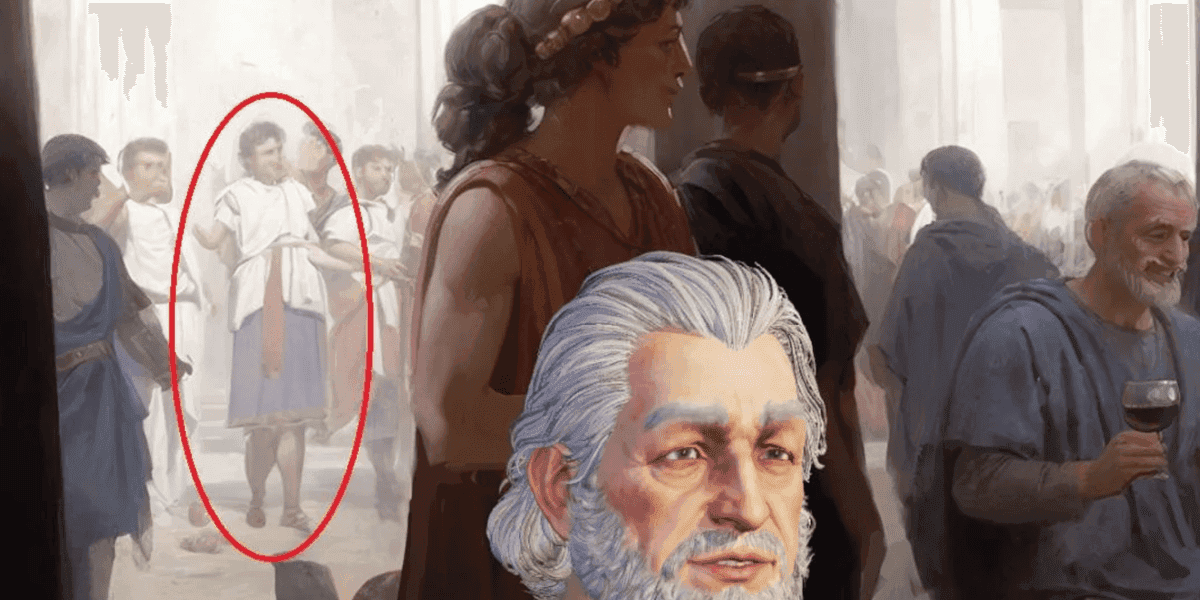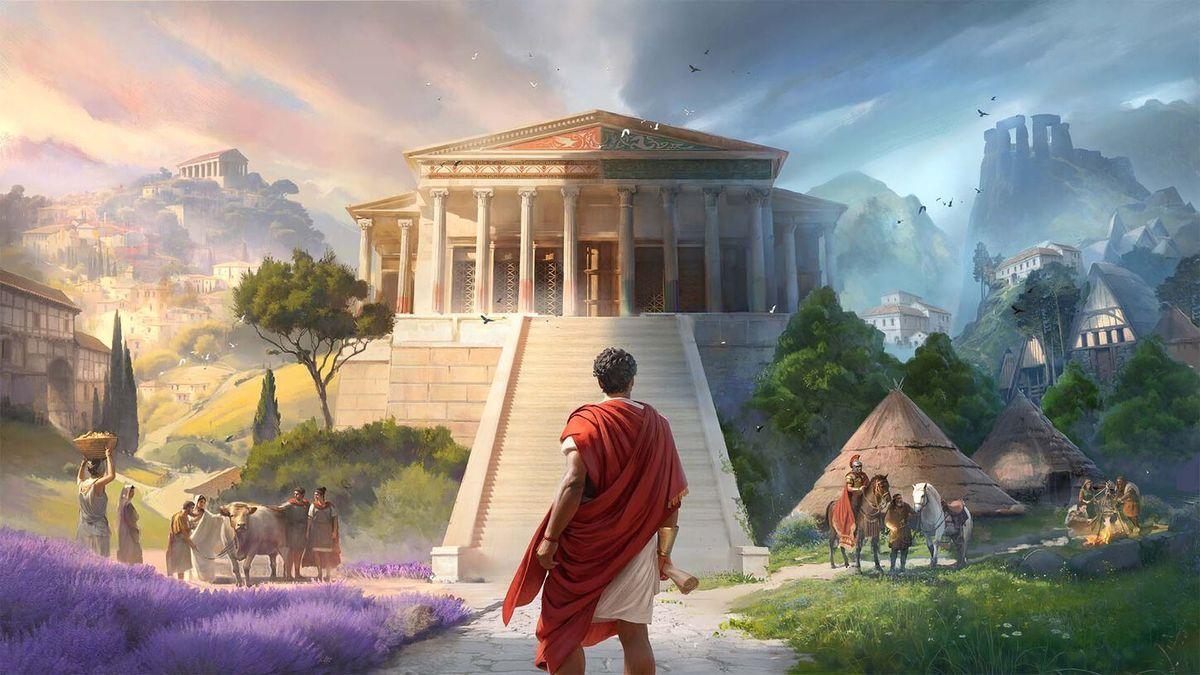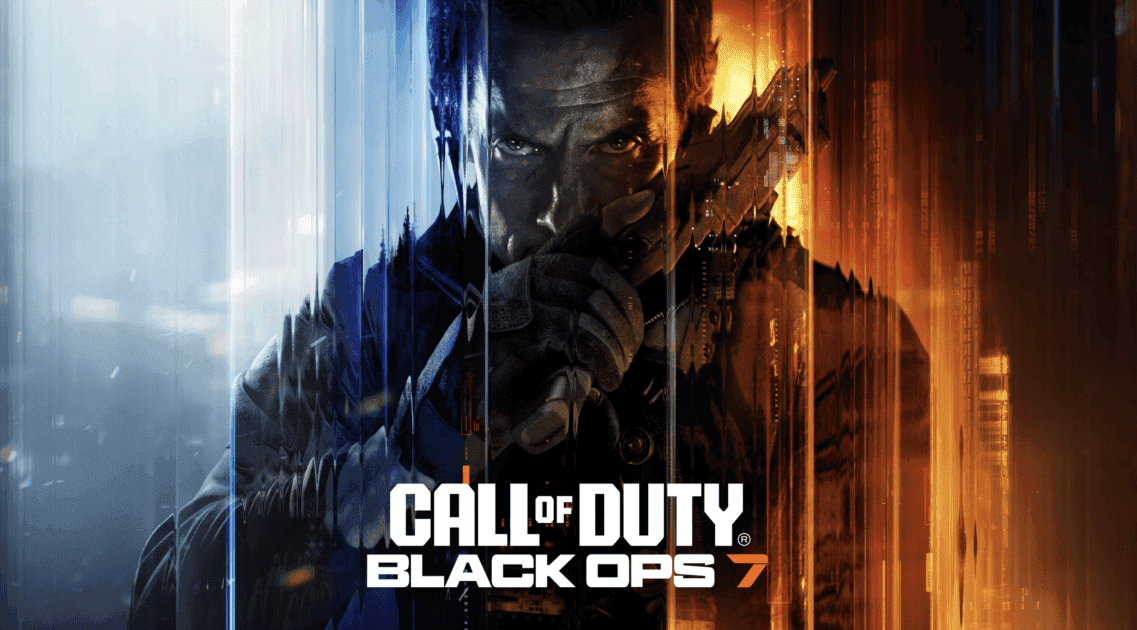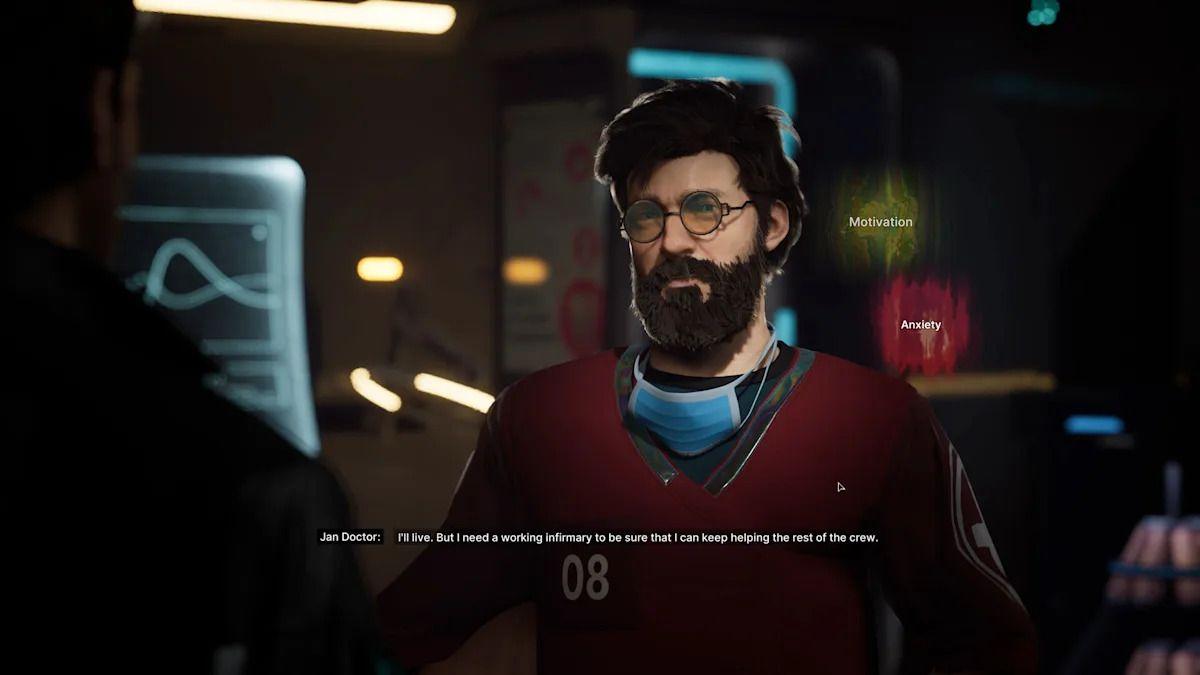Ubisoft Admits AI-Generated Loading Screen 'Slipped Through' Into Anno 117: Pax Romana
3 Sources
3 Sources
[1]
Ubisoft admits AI-generated loading screen "slipped through" into final build of Anno 117: Pax Romana
Ubisoft has told Anno 117: Pax Romana fans that it will be replacing an AI-generated loading screen image, insisting it had "slipped through" and had only meant to be used as a placeholder. The Steam page for Anno 117: Pax Romana carries an "AI Generated Content Disclosure" - the first for an Ubisoft game - but that hasn't stopped fans complaining about the image, or insisting that they expect better from a premium game from a developer like Ubisoft. The image, which can be viewed in full here, shows a number of tell-tale signs that it's been generated rather than drawn, including disfigured or out-of-scale facial features, missing limbs, and strange set-dressing. A touched-up version is considerably less jarring, but some fans still take issue with the fact that it was based on a prompt rather than an original piece of art. "If they are going to go with cheap tools in their game, I will wait till the game is cheap," said one unhappy fan. Another, leaving a negative review on Steam, wrote: "I don't want to live in a future where every big studio that very well could afford paying artists instead chooses to steal from artists by using AI generated images. AI tools are bad for the environment, bad for the job market, on top of that the images look awful, genuinely an eyesore in a[n] otherwise beautiful game." Responding to Kotaku, Ubisoft said: "This image was a placeholder asset that unintentionally slipped through our review process. The final image is attached here and will replace the current version of this artwork with the upcoming 1.3 patch. With Anno 117: Pax Romana being our most ambitious Anno yet, we've assembled the largest team of artists ever for the franchise and to help meet the project's unique scope, they use AI tools for iterations, prototyping, and exploration. Every element players will experience in the final game reflects the team's craft, artistry, and creative vision." And it's not just images that seem to have been generated by AI, either. According to some players, the game's text localisation is also allegedly "still AI-generated", too. u/Taubenangriff posted a number of examples they believe were translated by machine, writing "nobody who has ever played an Anno before was let near translation work, and it is still AI generated slop to a large part. They got six million euros cultural (!) sponsorship from the German state, but the result is outright disrespectful to the German language". German text localization is still AI generated in the release version byu/taubenangriff inanno These issues persist despite the same user highlighting issues with the German localisation two months ago. Ubisoft unveiled Anno 117: Pax Romana back in June 2024. A new entry in Ubisoft Blue Byte's long-running economic city builder series, it whisks PC and console players back to ancient Rome and the Roman Empire.
[2]
Ubisoft touches up AI art 'placeholder' that slipped into Anno 117, but fans are not happy it was there to begin with: 'Of all the video games, not Anno'
The venerable city builder has long been praised for its gorgeous artwork, which seems to make this sting all the more. Ubisoft has been caught with its hand in the generative AI jar again, continuing a multi-year streak of formal insistence by the publishing giant that AI and game development are destined to be together. Anno 117: Pax Romana is the first Ubisoft game to appear on Steam with an AI content disclosure, though the statement notes "the final product reflects our team's craft and creative vision." It seems that vision includes some pretty janky background characters with nubs for hands, as players are spotting on Reddit. In the above thread posted by user MedicaeVal, there's an imgur gallery where you can see some dubious, muddy-looking figures in one of the game's illustrations. Kotaku shared another imgur gallery featuring artwork where some Roman senators can be seen with similarly uncanny looks -- one of them lacks a head, for example. That same Kotaku story shares a quote from Ubisoft explaining that first image and proposing a fix: "This image was a placeholder asset that unintentionally slipped through our review process. The final image is attached here and will replace the current version of this artwork with the upcoming 1.3 patch." The statement also notes that because Anno 117 is the studio's "most ambitious Anno yet," AI tools were merely a complement to "the largest team of artists ever for the franchise." Here's the new image Kotaku shared: While the new image looks a bit better, I'd say the use of the term "placeholder" is questionable when the final product is very nearly the same. It calls into question how much of the artwork is AI in the first place; after all, the fix here seems to have just been to paint over the AI asset where it was ugliest. It's proving troublesome for fans. On the aforementioned Reddit thread, user AlcoreRain commented, "Your post is the reason I won't buy the game for now. It shows that they have used AI as base for the art, and this picture is just not on the same level as 1800. If they are going to go with cheap tools in their game, I will wait 'til the game is cheap." Another reply from taytay_1989 reads, "Of all of the video games, not Anno!! What drew me to Anno 1800 was its gorgeous artworks." This issue has permeated other areas of the game too, with players on social media expressing concerns that certain language localizations are allegedly AI-generated. It's a particular shame with Pax Romana because, in some respects, it's one of the better city builders in recent memory. AI is also an increasingly ubiquitous gamedev tool these days: It's getting harder and harder to spot when the handcrafted stuff ends and the AI insertions begin.
[3]
While Call of Duty: Black Ops 7 Acknowledges Deliberate AI Use, Ubisoft Pledges to Remove AI Image That 'Slipped Through' To Anno 117's Final Version - IGN
Assassin's Creed publisher Ubisoft has said it will act swiftly to remove an image found within Anno 117: Pax Romana that contains AI-generated elements, which it says was not designed to be included in the game's final version. Fans of the city-building Anno franchise quickly spotted a loading screen featured in the series' latest entry that was not of the same quality seen in others, with some telltale signs of AI generation: missing limbs, low-quality features and oddly composited elements. As posted on reddit, and first reported by Kotaku, the game's Steam listing also features a warning that "AI tools were used tp help create some in-game assets." In a statement to IGN, Ubisoft noted that the image had been a "placeholder" and provided a final, human-made version of the artwork it had meant to include instead. "This image was a placeholder asset that unintentionally slipped through our review process," a Ubisoft spokesperson said. "The final image is attached here and will replace the current version of this artwork with the upcoming 1.3 patch. "With Anno 117: Pax Romana being our most ambitious Anno yet, we've assembled the largest team of artists ever for the franchise and to help meet the project's unique scope, they use AI tools for iterations, prototyping, and exploration. Every element players will experience in the final game reflects the team's craft, artistry, and creative vision." Still, the final version of the image simply looks to have been retouched to clean up the original image's more wonky elements -- suggesting that anything else AI-generated which did look passable will remain. Regardless, Ubisoft's response differs from that of Call of Duty: Black Ops 7 publisher Activision, which hit the headlines last week by simply acknowledging the widespread use of AI-generated imagery in its latest blockbuster shooter -- particularly in its Studio Ghilbi-inspired calling cards. In a statement, Activision said its AI use was designed to "empower and support our teams to create the best gaming experiences possible for our players." Activision previously acknowledged the use of AI imagery in last year's Black Ops 6, too -- though only after fans pointed out a particularly egregious example of a six-fingered zombie Santa. Outside of its AI use, Ubisoft's Anno 117: Pax Romana has otherwise been warmly received. The game "is a gorgeous antique city-builder that sucked me in for dozens of hours," IGN wrote in our Anno 117: Pax Romana review, awarding the game a 9/10 score.
Share
Share
Copy Link
Ubisoft faces backlash after an AI-generated loading screen appeared in Anno 117: Pax Romana's final release, with the company claiming it was an unintended placeholder that will be replaced in an upcoming patch.
Ubisoft Faces Controversy Over AI Content in Anno 117
Ubisoft has found itself at the center of a growing controversy after fans discovered AI-generated content in Anno 117: Pax Romana, marking the first time the publisher has included an AI content disclosure on a Steam game listing. The issue came to light when players identified a loading screen image containing telltale signs of artificial intelligence generation, including disfigured facial features, missing limbs, and poorly scaled elements
1
.
Source: Eurogamer
The problematic artwork shows Roman senators and background characters with obvious AI artifacts, including one figure completely lacking a head and others with malformed hands resembling "nubs." These visual inconsistencies stood out particularly starkly in a franchise renowned for its meticulously crafted artwork and attention to detail
2
.Company Response and Damage Control
Responding to the backlash, Ubisoft issued a statement claiming the AI-generated image was merely a "placeholder asset that unintentionally slipped through our review process." The company promised to replace the controversial artwork with a hand-crafted version in the upcoming 1.3 patch
3
.However, the replacement image provided by Ubisoft appears to be largely the same artwork with minor touch-ups to address the most glaring AI artifacts, raising questions about how extensively AI tools were used throughout the game's development. The company emphasized that Anno 117 features "the largest team of artists ever for the franchise" and that AI tools were used only for "iterations, prototyping, and exploration"
1
.Fan Outrage and Broader Implications
The Anno community has reacted strongly to the revelation, with many expressing disappointment that their beloved franchise has incorporated AI-generated content. One fan commented, "If they are going to go with cheap tools in their game, I will wait till the game is cheap," while another wrote a negative Steam review stating they don't want to "live in a future where every big studio that very well could afford paying artists instead chooses to steal from artists"
1
.The controversy extends beyond visual elements, with German players reporting that text localization also appears to be AI-generated. This is particularly concerning given that the game received six million euros in cultural sponsorship from the German state, yet players describe the translation quality as "disrespectful to the German language"
1
.Related Stories
Industry Context and Precedent
This incident occurs amid broader industry adoption of AI tools, with other major publishers like Activision openly acknowledging AI use in recent Call of Duty titles. However, Ubisoft's approach differs significantly from Activision's transparent acknowledgment of deliberate AI implementation for efficiency purposes
3
.Despite the controversy, Anno 117: Pax Romana has received positive reviews for its gameplay mechanics and overall design, with IGN awarding it a 9/10 score. The game represents Ubisoft's most ambitious entry in the city-building franchise, set in ancient Rome and featuring expanded scope and complexity compared to previous titles.

Source: PC Gamer
References
Summarized by
Navi
[1]
Related Stories
Activision Faces Backlash Over AI-Generated Content in Call of Duty and Guitar Hero
25 Feb 2025•Technology

Call of Duty: Black Ops 7 AI Art Controversy Sparks Congressional Call for Regulation
14 Nov 2025•Policy and Regulation

11 Bit Studios Faces Backlash Over Undisclosed AI Use in The Alters
30 Jun 2025•Technology

Recent Highlights
1
Pentagon threatens to cut Anthropic's $200M contract over AI safety restrictions in military ops
Policy and Regulation

2
ByteDance's Seedance 2.0 AI video generator triggers copyright infringement battle with Hollywood
Policy and Regulation

3
OpenAI closes in on $100 billion funding round with $850 billion valuation as spending plans shift
Business and Economy





